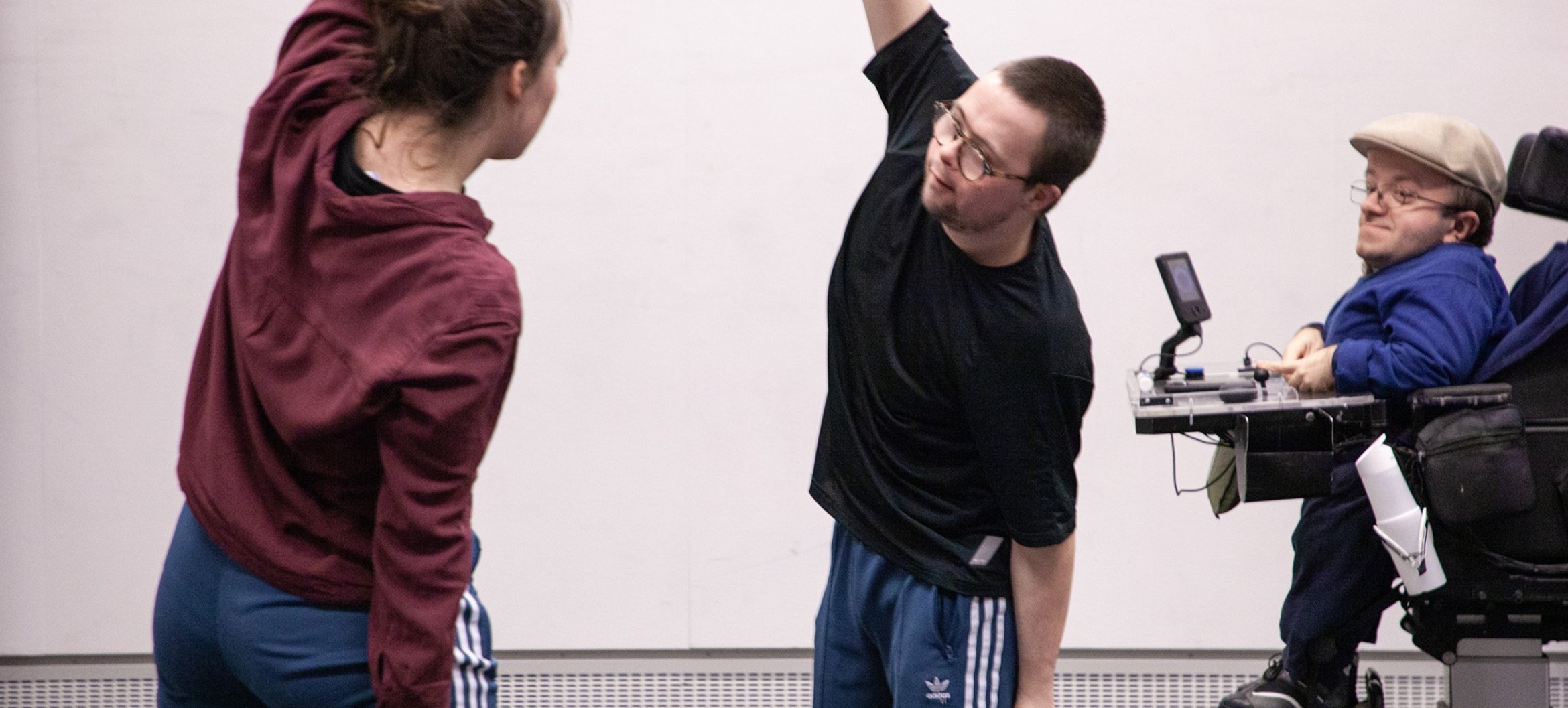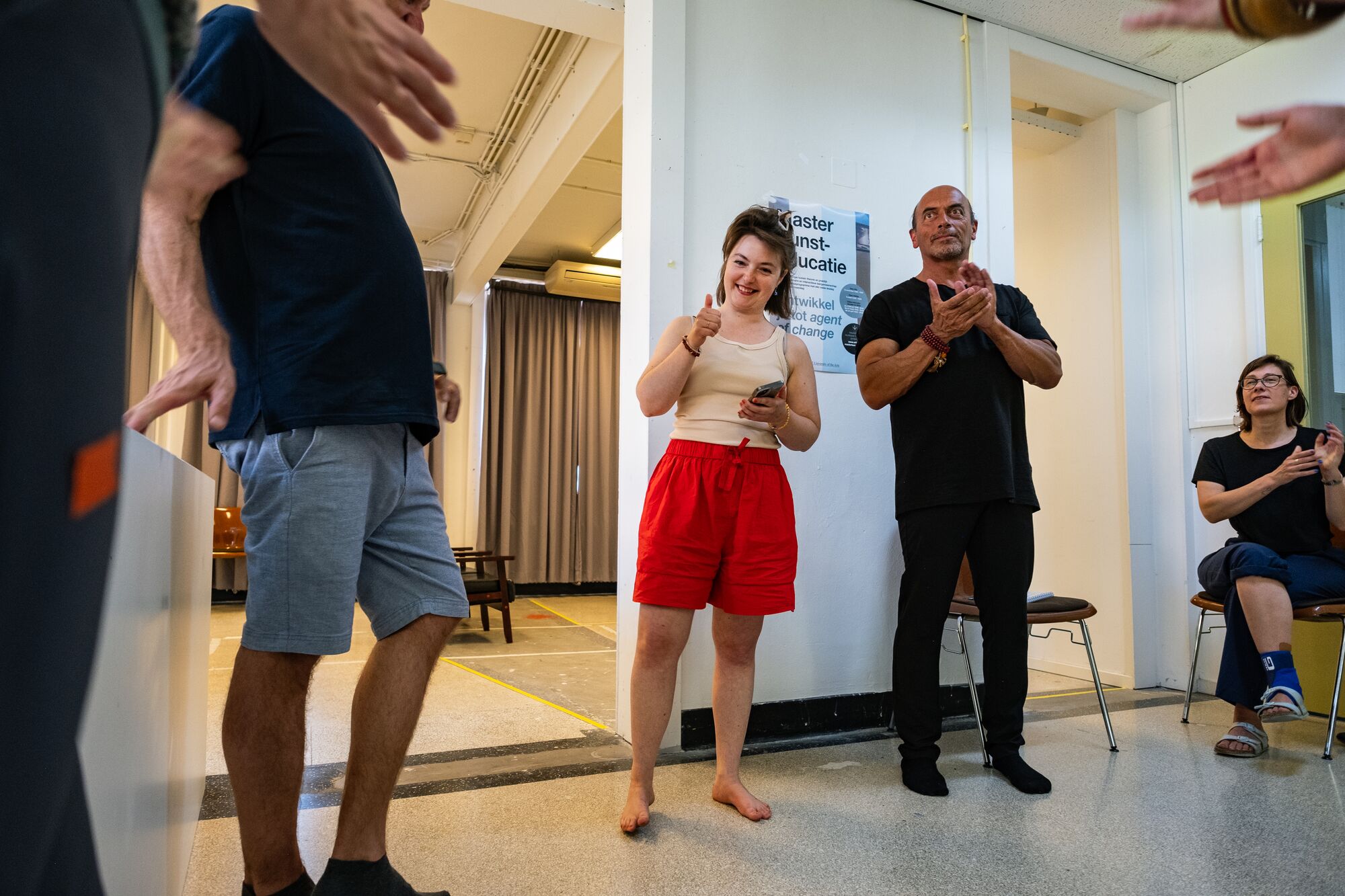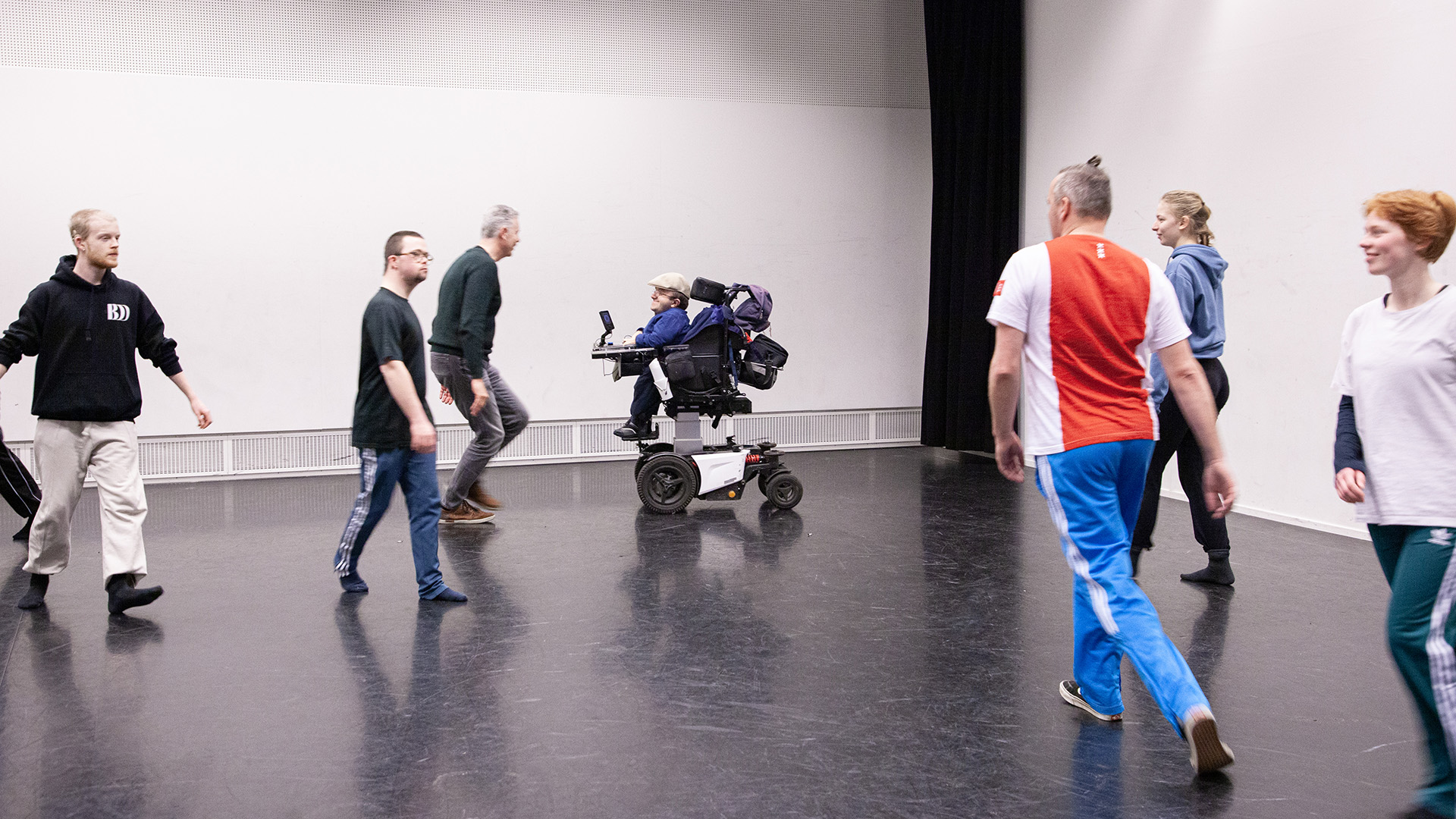Yuliya Globa: "We can do away with the term 'target group' altogether. We are a group and we do it together"
- Dance
- Education in Art
"Dance should be accessible to everyone, regardless of background, disability, origin or other things that want to put us in boxes." So says Yuliya Globa, master's student in Education in Arts and coach at the bachelor's course Artisteducator in Dance at ArtEZ. For her graduation project, she created an environment (WELAB) that enables different people with different bodies to develop through dance. "As far as I am concerned, we can do away with the term 'target group'."

She has a turbulent past behind her. Yuliya Globa was born in the Ukraine and emigrated to Germany at the age of eight. Because she didn't speak the language and didn't know the culture, for her dance was a way of connecting with her peers without having to talk to one another. "I mastered the language soon enough, but you always remain a bit of an outsider", explains Yuliya. "As a child, that could be tough at times. For me, art became a way of surviving and integrating."
"I relived my emigration period"
Because dance was pretty much Yuliya's life and she couldn't find a suitable dance course to facilitate her further development, she decided to emigrate again, this time to the Netherlands. She applied to ArtEZ and after two attempts she was accepted on the Artisteducator in Dance course in Arnhem. Several years later, she was appointed interdisciplinary coach for several different teacher training courses at ArtEZ, and right now she has nearly completed her master's degree in Education in Arts. "I chose this because I wanted to go into more depth", explains Yuliya.
During the master's course, you also constantly reflect on everything you're doing and have done. As a result, I started questioning more and more things, which brought more and more stuff to the surface."
"Doing a master's degree was intense, because I kind of relived my emigration period, which was also to do with language – during the Dance in Education bachelor's course, obviously you speak and write in Dutch, but in the master's there is a different focus on words and meaning. You take it a step further. During the master's, you also constantly reflect on everything you're doing and have done. As a result, I started questioning more and more things, which brought more and more stuff to the surface."

Making dance education accessible to everyone
During her graduation project WELAB, she took a critical look at her own legs, feet and hands as a dance artist. What does she do when she is working with people with different disabilities? Yuliya: “My research basically consisted of bringing together a mixed-abled group of people with a passion for dance. Because I want to make dance education accessible to everyone, we literally and metaphorically looked at different working methods I could use as a dance artist. And we also asked ourselves what inclusion means for us. What are our experiences, what do we consider valuable and what not?"

Everyone is a source of inspiration in dance
Through WELAB, she wanted to gather the insights of participants. How did they experience the working method and how did it affect them? Yuliya: “One of the ‘conclusions’ was that if there is a good balance between freedom and boundaries, participants experience various learning moments, which they also perceive very consciously. Another outcome was that everyone is a source of inspiration in dance, particularly if that person has a very different body. So stepping out of your comfort zone can be very valuable. We also observed that inclusion is something that needs to be trained; it is a process that is constantly evolving and which therefore cannot have a hard outcome, because we all still have a long way to go."
Engaging in dialogue through movement and dance.
According to Yuliya, living together and being able to participate in talent development should be a basic right. "But in order to make that a reality, a lot of effort will be required. It's very complex. During one of our meetings, we realised that the building was not even accessible to everyone. "So there's still plenty of work to be done." Yuliya explains that WELAB offers a potential environment in which we can engage in dialogue with one another. "As well as talking, the ways of doing so also include dancing, moving and experiencing. That's why I developed this working method. I think that a lot of people enjoy being part of something. And due to my background, I probably have a certain sensitivity to that."
I think that a lot of people enjoy being part of something. And due to my background, I probably have a certain sensitivity to that."
Thinking in boxes
Although her future plans are not yet entirely clear, Yuliya does have an ultimate goal: making universities of the art accessible to everyone. "If you're in a wheelchair and you want to become a dance teacher or choreographer, you should be able to", she believes. Ultimately, she wants to get to a place where we collectively do much less thinking in boxes and more living hand-in-hand. "As far as I concerned, we can do away with the term 'target group' altogether. We are a group and we do it together."


